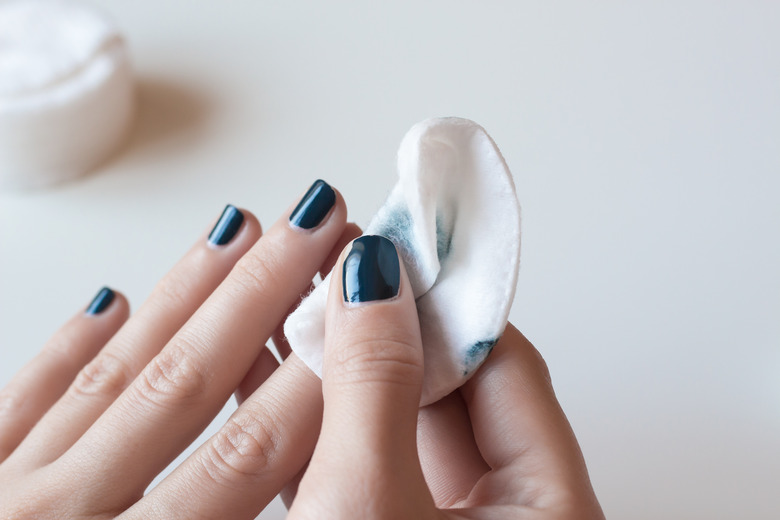How To Remove Acetone Residue
As a naturally occurring organic solvent often used to make plastics and other industrial products, you might know acetone best as being an ingredient in nail polish remover. If you spill acetone at home it doesn't leave an obvious stain because it's colorless and evaporates quickly. But commercial acetone products contain other substances that make it difficult to clean up after the acetone evaporates, so remove acetone residue quickly after spillages.
Things Needed
- Dry, white absorbent cloths
- Rounded spoon
- Dishwashing liquid
- White washcloth
- Dry towel
1. Blot the Acetone Residue
Blot the liquid with a dry, white absorbent cloth. Gently scrape up semi-solids with a rounded spoon. Break up solids and use a vacuum cleaner to remove them completely.
2. Mix the Solution
Mix 1/4 teaspoon of dishwashing liquid with 1 cup of lukewarm water. Do not use a stronger solution, as it might leave a soap film residue. Do not use laundry detergent, since it may contain bleach that can damage or discolor the surface you are cleaning.
3. Apply the Solution
Apply some of the dishwashing solution with a white washcloth to the acetone residue and for a few minutes, work in gently from the edges of the spill to the center. Don't rub. Continue until the spill is completely removed.
4. Blot the Solution
Blot the liquid up with another white cloth for as long as it absorbs the acetone solution. You may have to repeat the process until the acetone solution is completely removed.
5. Rinse the Area
Rinse the area thoroughly with cold water to remove all detergent residue when the spill is completely removed. Blot with a dry towel to remove all moisture. Ensure nobody walks on the area until it is completely dry.
TL;DR (Too Long; Didn't Read)
You can also use a commercial spot removal solution to remove acetone residue. Pretest any spot removal solution for color transfer to the cloth or damage to the carpet in an inconspicuous area. If a change occurs, use an alternative solution. Some spot removal solutions leave residue in the carpet that may attract soil. Use a mist sprayer to prevent over saturation of the area. Always follow the manufacturer's directions.
Warning
Acetone may dissolve or damage some plastics, so remove it quickly if it spills onto a plastic surface. Acetone evaporates very quickly, but avoid getting it on your hands. Wear rubber gloves for safe acetone removal. Long-term exposure can be harmful. Don't use any spot-removal solutions in concentrations stronger than those recommended.
Cite This Article
MLA
Gillespie, Claire. "How To Remove Acetone Residue" sciencing.com, https://www.sciencing.com/remove-acetone-residue-12192301/. 20 April 2018.
APA
Gillespie, Claire. (2018, April 20). How To Remove Acetone Residue. sciencing.com. Retrieved from https://www.sciencing.com/remove-acetone-residue-12192301/
Chicago
Gillespie, Claire. How To Remove Acetone Residue last modified March 24, 2022. https://www.sciencing.com/remove-acetone-residue-12192301/
